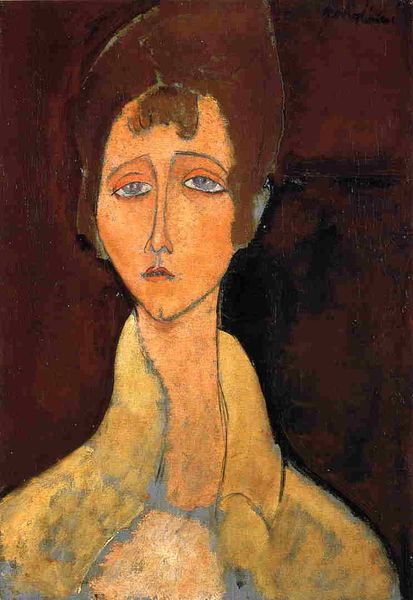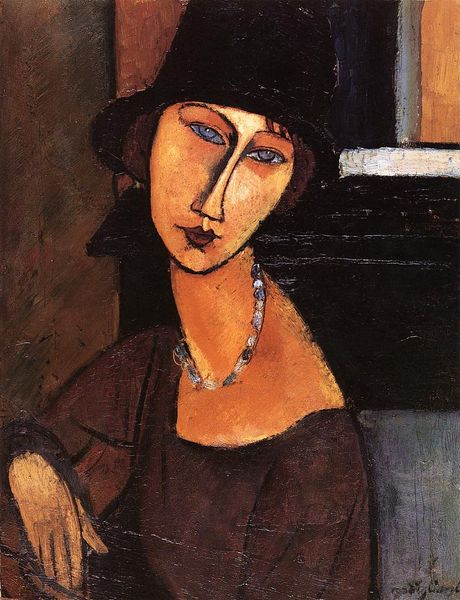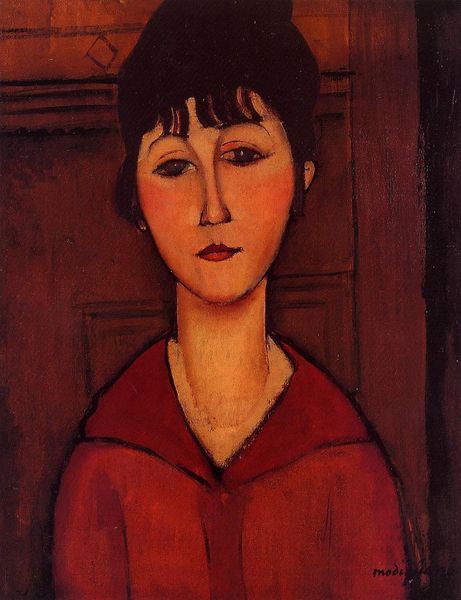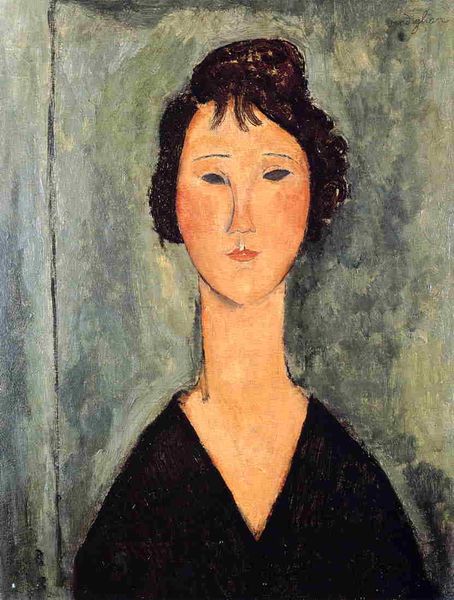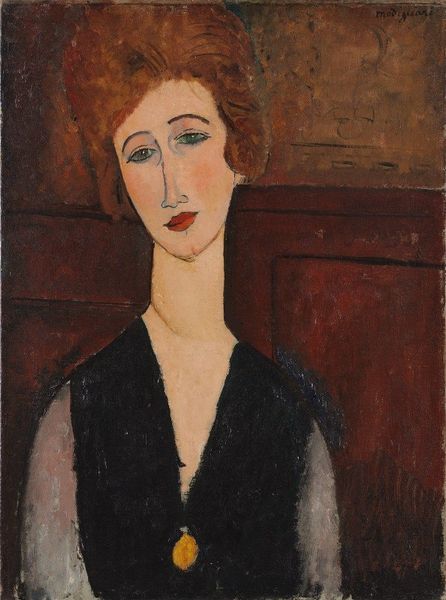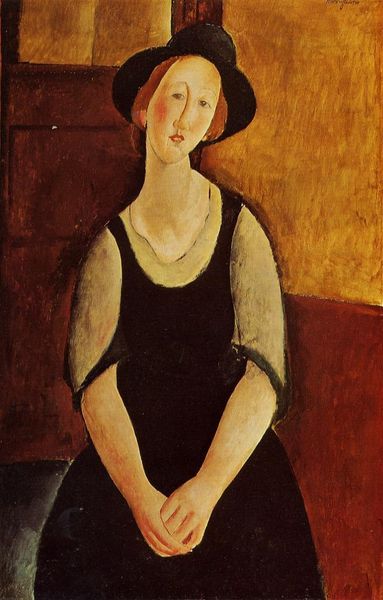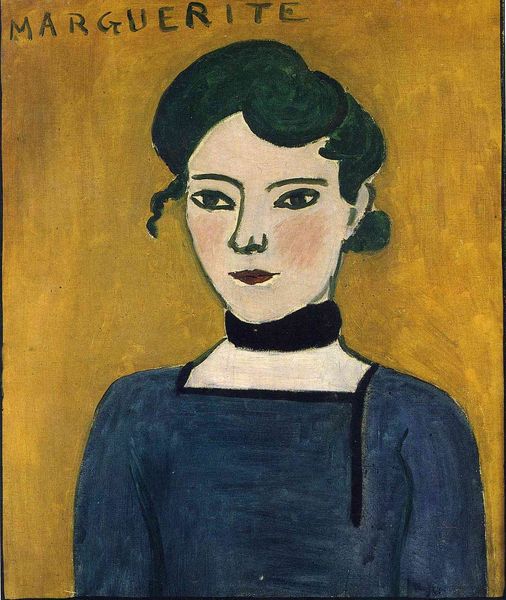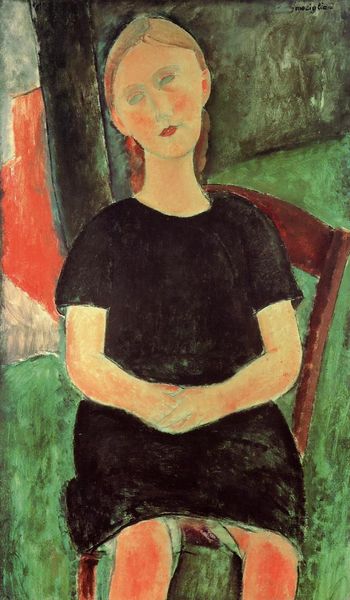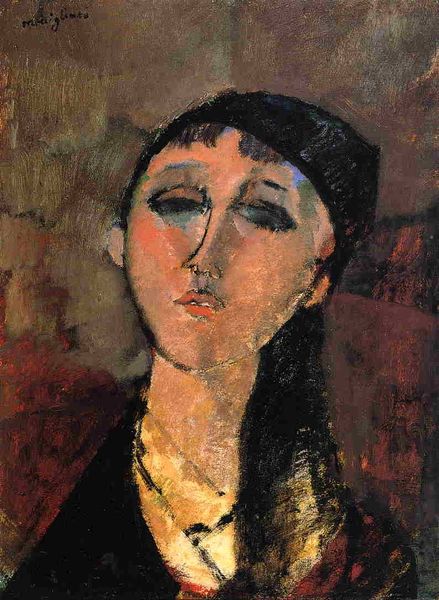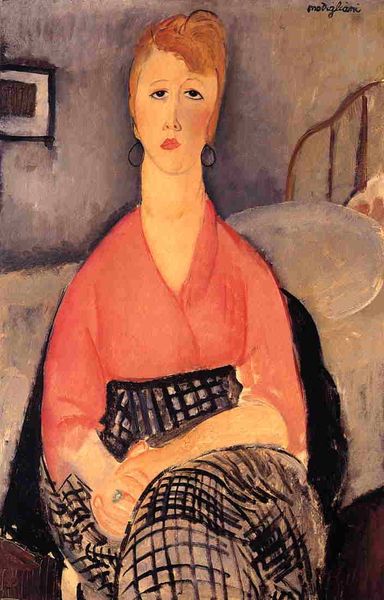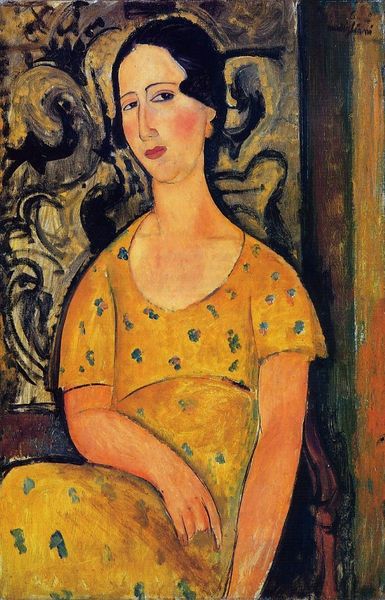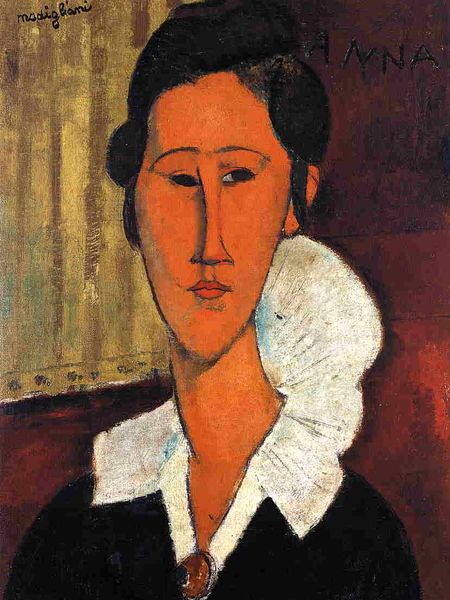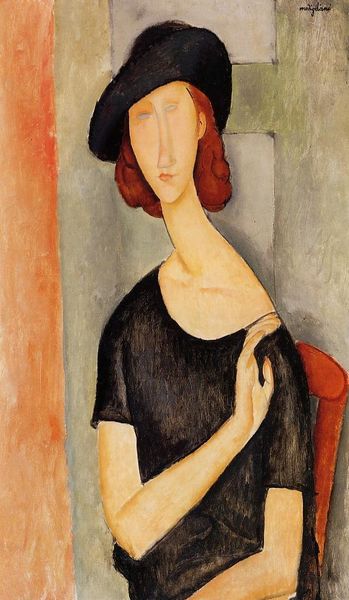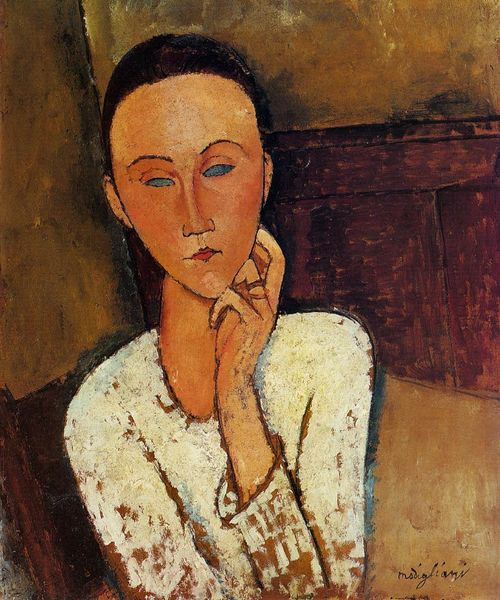
painting, oil-paint
#
portrait
#
painting
#
oil-paint
#
oil painting
#
expressionism
#
modernism
Dimensions: 100 x 75 cm
Copyright: Public domain
Editor: Here we have Amedeo Modigliani's "The Beautiful Confectioner," painted in 1916. The figure is rendered in oil paint, and her elongated features strike me as rather melancholic. What stands out to you about this piece? Curator: For me, this painting prompts a look at Modigliani's economic situation and the market he was navigating. This isn't some idealized bourgeois figure; it’s someone engaged in labor, even if beautifully rendered. How does depicting a 'confectioner'—someone involved in the production of luxury goods—speak to the tensions of early 20th-century consumerism? Editor: So you're suggesting the subject herself and her profession highlight broader economic forces at play? It's interesting to think about how Modigliani’s choice might reflect the anxieties around increasing consumer culture. Curator: Exactly. The question isn’t simply “who is she?”, but rather, "what does her labor signify within a rapidly changing society?" Considering the materials themselves–oil paint readily available but perhaps costly to the artist–adds another layer to understanding the work's social context. Modigliani may have selected her because it was in sync with art consumers. Why, then, does she appear sad and withdrawn? Is this to offer sympathy from Modigliani to other service employees? Editor: That's fascinating. I hadn't considered her profession as a form of social commentary. Curator: We can read art as part of material networks and power structures, where the artist, subject, and consumer are linked through the production and exchange of goods and representations. Editor: It shifts my understanding entirely to think of her as part of a much larger economic picture. I appreciate that new lens on Modigliani. Curator: And I hope I learned to be more sensible when viewing melancholic art.
Comments
No comments
Be the first to comment and join the conversation on the ultimate creative platform.
